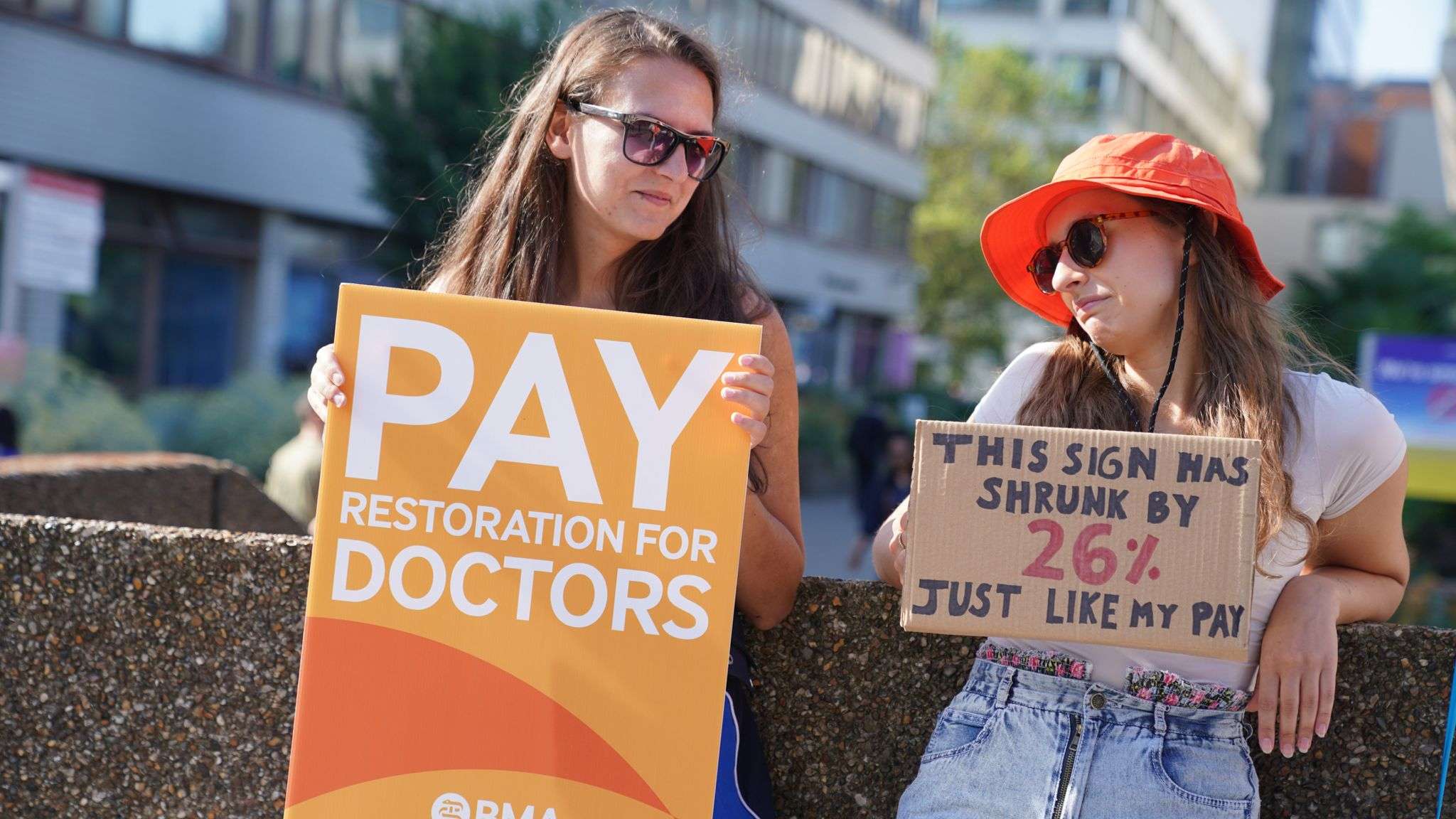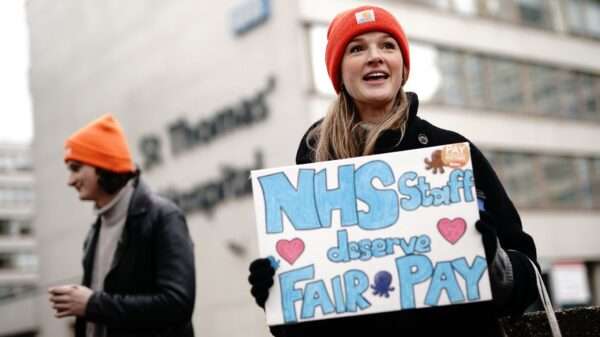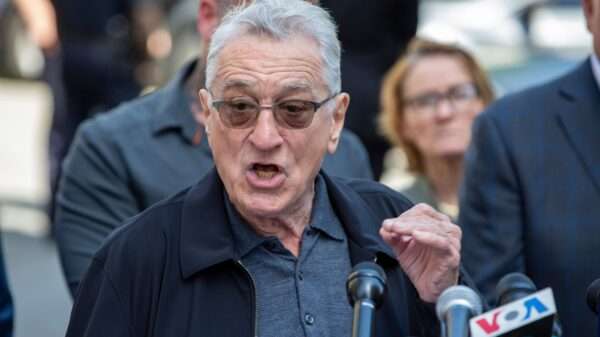Junior doctors in England will strike for five consecutive days in July, in what is thought to be the longest single period of industrial action in the history of the health service.
The British Medical Association (BMA) said the five-day walkout would be between 7am on Thursday 13 July and 7am on Tuesday 18 July.
Thousands of appointments and pre-planned operations are set to be disrupted as more senior doctors fill in and emergency and critical care is prioritised.
Junior doctors also went on strike for three days earlier this month. It followed a four-day walkout in April and a three-day one in March.
Junior doctors’ pay has decreased by more than a quarter since 2008 when inflation is taken into account – and many are burnt out from an increasing workload, according to the BMA.
It said they have no option but to strike as the government had only made a 5% pay offer, way below the 35% demanded.
The government has said such an increase is unreasonable and the strikes risk patient safety and will lead to more treatments being postponed.
Junior doctors are qualified but are undergoing years of training to become a specialist or a GP.
They make up around 45% of the NHS’s medical workforce and two-thirds are members of the BMA.
Just over half of junior doctors surveyed by the union said they had received job adverts from overseas recruiters.
The government of the state of South Australia has even sent trucks to picket lines offering improved pay if NHS doctors emigrate.








































